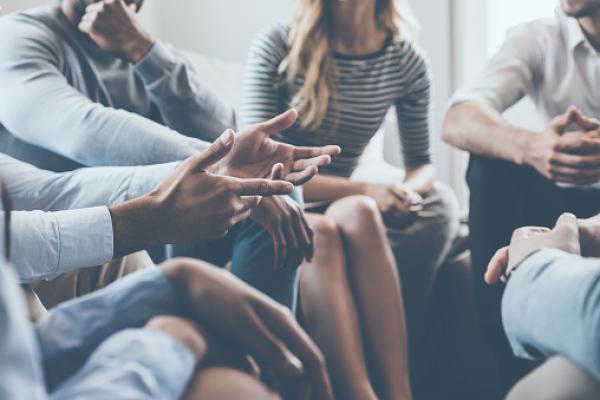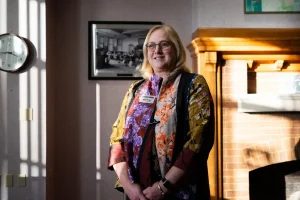Group therapy: small groups, big benefits
September 23, 2018
When some people think about therapy, they envision themselves laying on a comfy recliner, in a dimly lit room, while they speak about their problems alone to a licensed professional. Individual therapy, somewhat like this vision, is a common and useful treatment that the University of Wisconsin-La Crosse has to offer.
However, many students rarely think about the option of group therapy. UWL offers a range of group therapy options that can be found through the UWL Counseling & Testing Center. Group therapy usually involves one facilitator and four to ten students that work off of each other to cope with real-life problems.
Gretchen Reinders is the director of the Counseling and Testing Center at UWL. During her five years at UWL, she has helped coordinate the group therapy options, as well as take the information from previous group sessions and model new groups around meeting more of the student’s needs.
“We make sure that we have a group that specifically addresses some of those concerns, so we can reach a wide audience of students,” commented Reinders. She included that she is always looking for new ways to improve group therapy and offer more groups consistently.
Reinders mentioned, “Group therapy is just as important as a modality of treatment as individual therapy, and for some presenting concerns, it is the preferred modality of treatment. The reason is that it is a solid option for treating certain presenting concerns.”
According to Reinders, group therapy promotes universality, which means knowing you are not alone. Clinicians can tell students and clients that they are not alone, but Reinders mentioned, “There is something powerful about hearing your own thoughts, feelings and words come out of someone else’s mouth, who is a peer. It is a powerful mechanism for change.”
Group therapy also provides a longer-term option compared to individual therapy sessions. Some students want to continue with therapy for one to two years, and group therapy makes this possible. Reinders shared that she met some students that started with group therapy their freshman year and chose to continue with it until they graduated.
Reinders indicated that there are a couple options for therapy. There are therapy groups, which is a fairly open-ended and very process oriented. The UWL Counseling and Testing Center also offers support groups and skill sessions. However, they have a new therapy option, which is a workshop.
Workshops occur three times in one calendar week. For instance, they would be on Monday, Wednesday, and then again the following Monday. The Counseling and Testing Center provides two workshops at a time. After the three sessions, a clinician meets with the students to gain feedback on their experience, as well as determine what the next objective it, whether students are good for now or they need additional help through individual or group therapy.
Workshops provide a smooth transition into groups for students who are unsure if they want to make the commitment of a particular group at first.
“Students tell us, there is a pretty common anxiety that goes into joining a group format,” Reinders said. Although there is an apprehension for joining a group, Reinders expressed that most students are surprised by how much they gain from the experience and how much they were able to contribute to the group atmosphere.
Reinders communicated that there is a vast amount of groups available. All students enrolled in UWL are eligible for group therapy, but before a student can join a group they must go through a twenty-five-minute pre-group session with a facilitator that will determine if the group is a good fit.
“A clinician can help determine the group you think is a good fit for you, maybe it is a different one, but most times students know themselves pretty well, so what they feel like would be a good fit often is,” Reinders included.
Although the counseling center offers group therapy, they still offer individual therapy, as well as academic skills and urgent care services for students experiencing a mental health crisis.
If you are considering group therapy or other therapy options, visit https://www.uwlax.edu/counseling-testing/. For direct assistance call 608.785.8075 or visit 2106 Centennial to set up a meeting or get more information.






